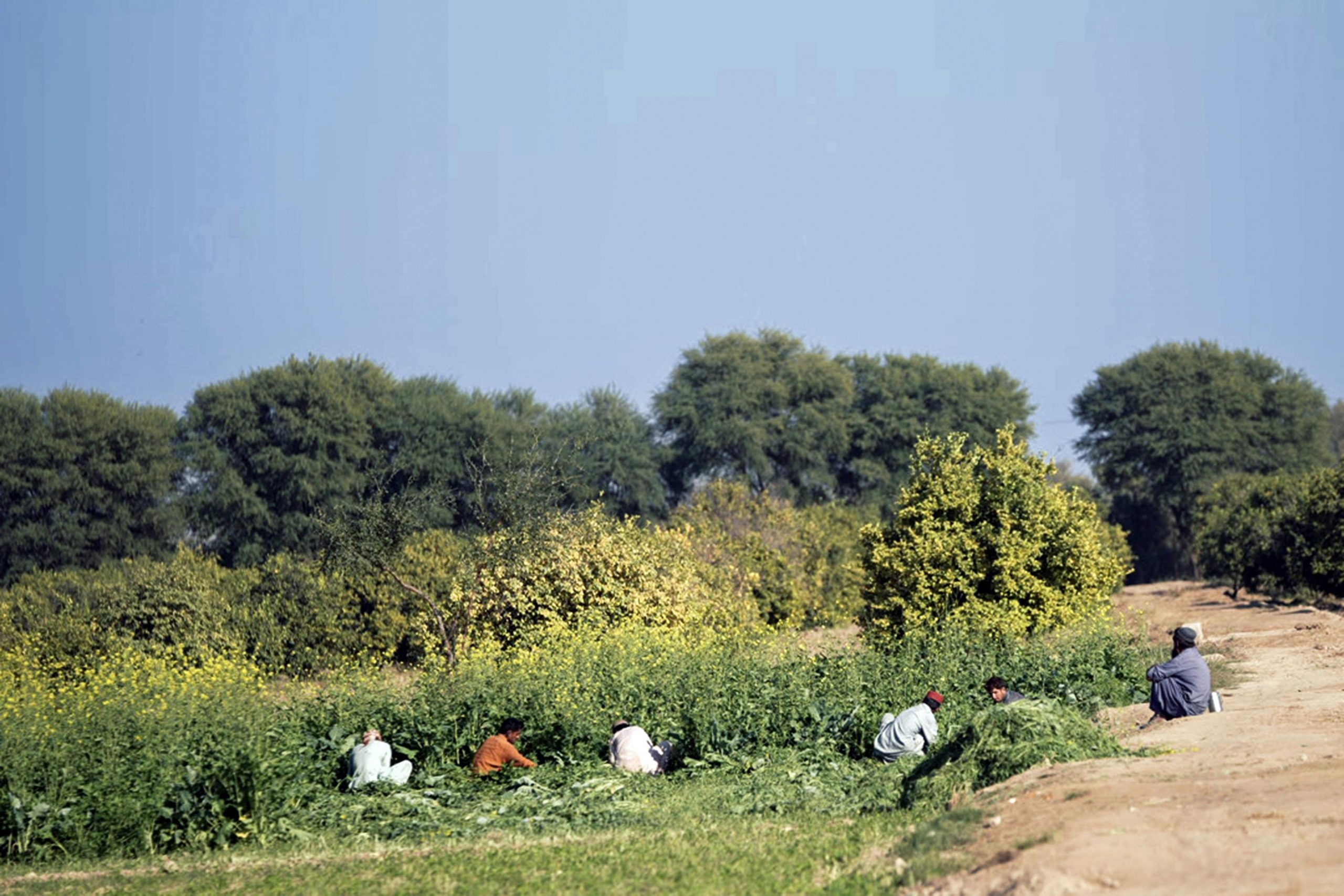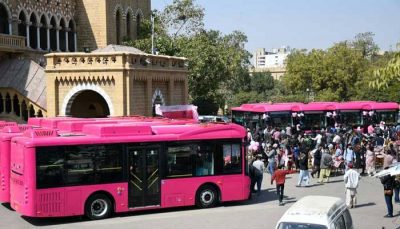Agriculture remains the backbone of Pakistan’s economy. This sector employs almost 42 percent of the labor force, and provides a livelihood (including via ancillary services) to almost 62 percent of the population. The agriculture sector also contributes 18.9 percent to the country’s GDP. However, the sector has consistently underperformed for many years and displays some of the lowest levels of productivity in the world.
A recent seminar organized by the Consortium for Development Policy Research (CDPR) and the International Growth Center (IGC) in collaboration with the Punjab Government “Development in Punjab: Setting New Priorities in Agriculture and Industries” presented studies on the potential of using technology to overcome barriers to growth in agriculture.
While the share of agriculture in the GDP of an industrializing country typically goes down with time, increases in productivity due to technological advancements often ensure the sector does not stagnate. This has not happened in Pakistan. Over the past twenty years, the share of agriculture in GDP has gone down from 27 percent to 18.9 percent. Agricultural productivity also lags significantly behind the rest of the world. For example, Pakistan produces 3.1 tonnes of wheat per hectare compared to 8.1 in France, 2.5 tonnes of cotton compared to 4.8 in China, and 63.4 tonnes of sugarcane compared to 125.2 tonnes in China. Low yields have economy wide impacts; they result in lower incomes for farmers, lower export earnings, and also inhibit the growth of agricultural byproducts.
Reasons behind low productivity are multiple and varied. These include unpredictable and declining availability of water, the lack of cold storage solutions, inefficient logistics networks, declining investments in the agriculture sector, and poor extension services for farmers. As a result, it is estimated that nearly half of the agricultural output is wasted. The 3.81 percent growth observed in fiscal year 2017-18 was due to government policies in the form of subsidies and friendly procurement prices, which are at best short-term fixes.
Many of the problems hindering agriculture sector’s performance are systemic and hence pervasive across almost all economic sectors. Most issues will continue to affect productivity till major reforms are undertaken. However, improving extension services to farmers does not require any structural reform. Use of modern technology to enhance outreach to farmers and impact farming methods can result in significant improvements in productivity and yields.
Government of Punjab remains committed to improving service delivery in agriculture through the use of technology. Two ways in which the government is transforming agriculture in Punjab were discussed at the seminar and are presented below.
The innovative use of technology can greatly enhance the quality of agriculture extension services. One way is to propagate the use of precision farming – i.e. the practice of using information technology to make farming more efficient. Typically it involves the use of a wide variety of tools – such as GPS guidance, control systems, sensors, robotics, drones, autonomous vehicles, variable rate technology, GPS-based soil sampling, automated hardware, and telematics – to help farmers make better decisions about planting and growing crops. Based on these tools, farmers are given advice on soil quality, weather forecasts, fertilizer application, and a host of other factors. Precision agriculture is aimed at making farming activities more accurate and controlled to ensure profitability, sustainability, and efficiency.
Adeel Shafqat, researcher at the Center of Economic Research Pakistan, and project manager for Precision Agriculture for Development (PAD) discussed the objectives of this project and its contribution to easing provision of advisory services to farmers based in Punjab. PAD provides customized agricultural advice to farmers through mobile phones. The project has been developed in response to the recognition of the increasing availability of high quality agricultural data in developing countries such as Pakistan, but with poor access by farmers.
PAD uses a combination of phone calls, text messages and an application to build profiles of farmers, encompassing location, crop variety, water management, soil type, rainfall, and other variables to provide customized input and management advice. The most common areas in which farmers need advice include seed selection, fertilizer application, and pest and disease management. However, a major obstacle faced by PAD, and one that severely affects farm productivity, remains low literacy levels amongst farmers. The impact of ICT is constrained by its usability, leaving considerable scope for the efficacy of current extension workers.
Another way technology can be used is to incentivize extension workers to work more efficiently. Agriculture extension services continue to be plagued by capacity constraints impacting both the quality of information and outreach. In an-ongoing study, IGC researchers have partnered with the Agriculture Department in Punjab to help improve existing systems to monitor the performance of extension staff. Zahra Mansoor, a researcher at World Bank and working on the project, presented early findings from the study, testing interventions that best incentivize field staff. The project builds on AgriSmart, an application already in use by the department to track key performance indicators, manage human resource and obtain farmer feedback on quality of extension service. Early results of AgriSmart show substantial increases in individual farmer visits, time spent on extension services, and the total number of village visits.
The story that emerges from these two projects is that use of technology can make agriculture more efficient and profitable by providing accurate data to farmers and extension workers, and by improving the performance of extension workers themselves. While structural reforms are essential, there is no reason why poor extension services should continue to negatively affect productivity in the digital age.
Bakhtiar Iqbal is a Research Assistant at the Consortium for Development Policy Research





